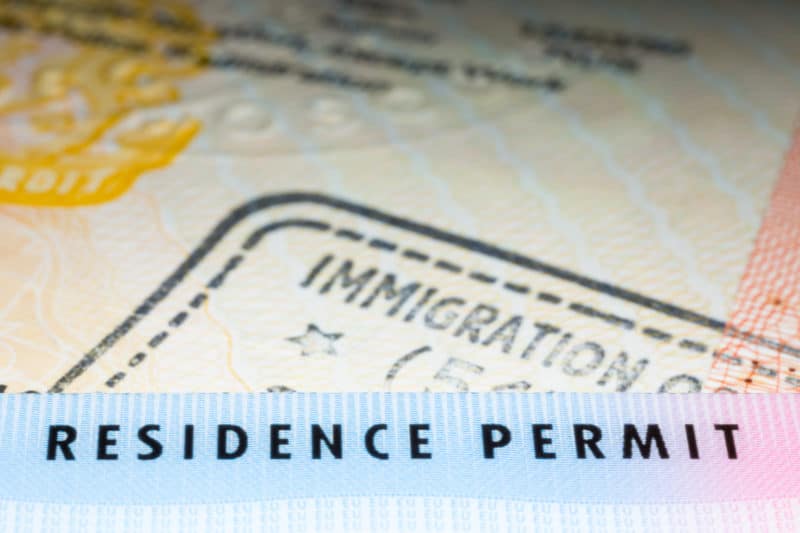The Different Pathways to Residency in Dubai
EER has been lucky enough to call the UAE home for 17 years, so we know better than most what an exciting and dynamic country it is. From our headquarters in Dubai, we have watched as the city, and the country, has grown and evolved in a myriad of positive and innovative ways over the past two decades. The city’s ability to deal with the challenges of the pandemic have only further cemented its reputation for flexibility, inclusivity and stability. Such has been the international recognition of Dubai’s report card during the pandemic, that its attraction as a top location for talent and financial investment has increased exponentially since 2020. To manage and support this demand the government has implemented a series of additional residency in Dubai options that allow for the smooth relocation of individuals and their families from all over the world. To help you navigate your options, we decided to take a look at the different pathways to residency in Dubai, both new and old, and what qualifications and requirements you might need for each of them.

Residency in Dubai
For those who are unfamiliar with the ‘residency’ concept, it is the term applied to expatriates who wish to make their home in a country they were not born in or do not have citizenship in. It denotes their ‘right to residency’ in that country and recognizes a status beyond ‘tourist’. In Dubai, as in many countries, residency is essential for those who wish to stay here long-term, either for work or to study or just to live. Residents of Dubai must have their own residency visa, inserted into their passport, that outlines the length of their stay and type of visa, and their own health insurance.
Types of Residency Options
There are now several different types of options for residency in Dubai. They range from short-term to long-term and cover a multitude of areas in order to accommodate a great number of potential expats and their associated investments. Here is a brief breakdown of each visa type:
Employment Residency Visa – the most common type of residency visa available in Dubai, the employment residency visa is provided to individuals who have a contract of employment with a company that is based, at least in part, here in Dubai. Every offer of employment must include a commitment to secure a visa (unless an individual has an existing one) and relevant documentation for the prospective employee. This residency visa typically lasts between 1 and 3 years in duration and comes with the requirement of an Emirates ID and allows the individual to enter and exit the country easily during its validity.
Virtual Working Programmer/Digital Nomad Visa/Remote Visa – under this visa individuals can relocate to Dubai but remain an employee within a company that is based outside of the UAE and work remotely. The visa is valid for one year and can be renewed annually and it also allows for family sponsorship during the duration. The cost of this visa is around AED 2,500 and to qualify an individual must have either a minimum salary of over AED 18,000 per month or proof of ownership of a company with a monthly income of over AED 18,000 for entrepreneurs.
Golden Visa – Launched in 2019, the Golden Visa is a 10-year long-term residence visa that can be granted on a case-by-case basis to investors, entrepreneurs, bright students with potential and specialist talents and researchers in a variety of fields. Individuals must apply, which can be done by those with existing types of residency visas already, and those who are not residents but do match all the criteria needed and outline their qualifying attributes depending on the category they fall under.
Student Visa – Student residency visas are available for foreign students over the age of 18 applying to study at a university or college in the UAE. Valid for one year, but renewable, the visa is issued based on the student meeting certain qualification criteria and, upon graduation, grants the individual a one-year residency visa. There are also additional opportunities for sponsorship and benefits for a student’s family associated with this visa as well.
Retirement Visa – If you are over 55 and would like to retire to Dubai, there is now a retirement visa that is available if you meet the criteria. This visa is a five-year renewable residence visa available to individuals, and their families, who have either cash savings of no less than AED 1 million, a non-mortgaged property in Dubai that is worth no less than AED 2 million, a monthly income of no less than AED 20,000 or a combined value of savings and property that is no less than AED 1 million.
Freelancer Visa – this visa is offered to self-employed workers in Dubai who wish to sponsor themselves and not be associated with a specific brand. Particularly promoted to those in the fields of media, education, technology, art, marketing and consulting, this visa is also available to owners of independent businesses.
Investor Visas – there are a range of residency visa options available for large-scale financial investors looking to settle in Dubai. Most issued on a three- year or five-year basis, these visas reflect the amount of the investment made by the individual into a company or companies within Dubai and include Shareholder Visas for those with vital roles within organizations. Investor residency visas can also be provided to individuals who invest in property in Dubai. With a required minimum value of AED 750,000 for a three-year visa and AED 2 million for a five-year visa individuals or spouses can secure residency visas based on their purchase of a property or properties within the city. Investor visas issued following company or property investment can also provide sponsorship for the family.
Dependent Visa – this is the type of residency in Dubai visa that is issued for spouses and family members who require sponsorship and due to their age, circumstance or preferences are unable to secure a residency visa through employment. Individuals with most types of residency visas will be able to sponsor their spouse and any children if they meet the necessary criteria as determined by the Ministry and the validity of the sponsorship will be in place for the duration of the sponsor’s visa and will need to be renewed alongside theirs when the time comes.
If you would like to talk to our expert team about residency in Dubai options that could suit you, your family or your company, get in touch today on 00971 4 421 1819 or info@eerme.com





